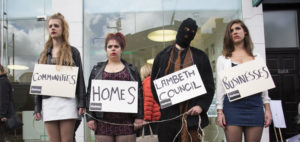“Tough on crime, tough on the causes of crime” remains one of Tony Blair’s most memorable slogans — still durable and pithy well after its coinage, 30 years ago. It is archetypal of the Third Way approach, and continues to articulate a broad popular understanding of how to address law and order. And it has continued to cast a long shadow over political messaging on criminal justice — right up to Rishi Sunak’s latest push on “immediate justice” and anti-social behaviour, which includes crackdowns on the sale of nitrous oxide and begging.
Like Blair, Sunak has become party leader relatively young. Like Blair, he is still fairly new to the political frontline, and seeks to distinguish himself from his predecessors. But the rest of the political context is dramatically different. Whereas Labour at that time were in opposition and hungry for power, the current Tory Prime Minister fronts a party which has held office for 13 years. His focus on law and order, polling would suggest, is more a case of holding a line than of ploughing new terrain. So, what was it that made “Tough on crime, tough on the causes of crime” such a compelling turn of phrase for New Labour? And can “tough” rhetoric boost the prospects of Rishi Sunak in the same way?
The work of US psychologist George Lakoff is useful here. An interdisciplinary academic, originally specialising in linguistics, Lakoff sought to understand why Left-wing and Right-wing thinking often falls along clear and predictable lines — even in policy fields that ostensibly have little in common. “Why,” as Lakoff put it, “does being anti-government fit with wanting a stronger military? How can you be pro-life and for the death penalty?… What does owning guns have to do with denying the reality of global warming?”
One of Lakoff’s conclusions, in answer to these questions, related to cause and effect. He set out two ways of thinking. “Direct” causation, he argued, emphasises immediate actions and consequences: A + B = C. This approach is favoured by conservatives; Trump’s proposed wall with Mexico, for example, is “direct” reasoning on steroids. In the other corner, preferred by progressives and the liberal Left, is “systemic” reasoning. This looks upwards, to an ecosystem of structural and societal factors; it concludes that these are the true catalyst for the social ills we face.
Apply this to law and order, and you get a clear overlay. Is the “scourge of anti-social behaviour”, as Rishi Sunak calls it, a “direct” problem, best solved by stronger policing and harsher punishments? Or is it a “systemic” one, created by the lack of opportunities which an economically unequal society creates? Should we be tough on crime or tough on its causes? Most of us will have at least some “direct” instincts when it comes to crime. Getting pick-pocketed or happy-slapped might leave even a diehard “society’s fault” liberal wanting to see some form of comeuppance. Indeed, if we think about why criminal justice is so emotive for people — and why it remains a political football in a comparatively safe country like Britain — it’s partly because it presents such an instinctive call to action for “direct” reasoning.
If a person has killed someone else with a knife, for instance, an intuitive response is to believe both that we need to be protected from them and that they need to pay. The “systemic” argument — which would instead look at the wider contextual factors that led them to offend — will often seem beside the point. It may only be possible to make it from a safe distance away, once the immediate threat has been addressed. Indeed, George Lakoff describes how automatic “direct” causation can be:
From infanthood on we experience direct, simple causation: if we push a toy, it topples over; if our mother turns a knob on the oven, flames emerge. Picking up a glass of water and taking a drink is direct causation… Punching someone in the nose is direct causation. Throwing a rock through a window is direct causation. Stealing your wallet is direct causation… When causation is direct, the word cause is unproblematic.
“Systemic” thinking, by contrast, “is more complex and is not represented in the grammar of any language”. As Lakoff puts it: “It just has to be learned.” This partly explains why the Left so often feels it is playing away from home. Progressive tonics may be correct, in a technical or philosophical sense. But they come to human beings less naturally.
This brings us back to Blair’s Nineties strapline. “Tough on crime, tough on the causes of crime” was so effective because it told voters you did not need to choose between “direct” and “systemic” causation. The police can get on with stopping crime while somewhere, in a classroom on the other side of town, a teacher equips their pupils to avoid it in the first place. Blair’s “tough on crime” rhetoric was an attempt to rid Labour of its reputation as a party built on “systemic” reasoning alone. The soundbite thus bridged the blank-slate logic of the liberal Left with the more common-sense approach of Labour’s traditional support and of swing voters. In the run up to 1997, this formula provided the reassurance which both groups needed.
What is the relevance of all this, when it comes to Sunak’s current electoral predicament? In a report for Progressive Britain last year, I argued that Boris Johnson’s success in the Red Wall came down to his bish-bosh-wallop mastery of “direct” logic. The Tories had historically accepted elements of “systemic” reasoning and attempted to straddle the two. But, from foreign policy to immigration to the economy, they slowly re-styled themselves over the course of the 2010s as a “no-nonsense” party, whose purpose was to provide “direct” answers to every policy question you could care to mention. According to Sebastian Payne’s book, Broken Heartlands, Dominic Cummings told 2019 Tory strategists to frame their pitch to the Red Wall as “Blairism without caring about the causes of crime”.
By doubling down on one side of Lakoff’s equation, the Tories won the 80-seat majority which Sunak now presides over (against a candidate, in Jeremy Corbyn, who appeared to embody woolly “systemic” thinking at its worst). But they also left themselves badly exposed — especially following Boris Johnson’s very “direct” and obvious breaches of his own rules. They now find themselves adrift from any voter of a vaguely “systemic” bent, reliant on an electoral pool whose geographical spread makes them efficient in terms of winning seats, but whose age profile makes them increasingly rare. To have any hope, the Conservatives now find themselves in a position where they need to continually stimulate this group’s fear that wishy-washy, “systemic” thinking has taken over. And they need to present themselves as the guardians of “direct” solutions to every problem — from small boats to laughing gas.
Social mores have also changed significantly since Blair’s early days as Labour leader — partly due to the expansion of higher education which his governments subsequently presided over. Support for the death penalty, for example — as good a proxy for toughness as you’ll find — fell from over 70% in 1993 to under 50% today. Third Way politics did not have to contend with such a broad values spectrum as now exists. Conservative strategists may regard the small but growing cohort of ultra-“systemic” reasoners on the Left as a gift, allowing them to galvanise their “direct”-thinking base against a phrase such as “defund the police”. But they perhaps miss, in the course of this, that the mean average of public opinion has moved too. The typical voter, I suspect, is readier to blame an issue such as anti-social behaviour on social conditions than they were in the Eighties and Nineties. In this context, policy announcements based on “direct” reasoning may bring diminishing returns as time passes.
Ultimately, Sunak’s focus on crime derives from a fundamentally different place from the young Blair’s. Whereas the latter was trying to marry two electorates and retain both, the former is seeking to hold onto one — at the expense, very likely, of further haemorrhaging votes within the other. If the Tories lose the next election, then some greater reckoning with these questions will surely be required, by Sunak or his successor. In a curious reversal of New Labour’s dilemma, the UK’s growing tribe of “systemic” reasoners will at some point need to somehow be won back — through a public demonstration that the Tories are serious about the “causes of crime”. Who knows? They may even wind up resuscitating Blair’s full slogan.
Disclaimer
Some of the posts we share are controversial and we do not necessarily agree with them in the whole extend. Sometimes we agree with the content or part of it but we do not agree with the narration or language. Nevertheless we find them somehow interesting, valuable and/or informative or we share them, because we strongly believe in freedom of speech, free press and journalism. We strongly encourage you to have a critical approach to all the content, do your own research and analysis to build your own opinion.
We would be glad to have your feedback.
Source: UnHerd Read the original article here: https://unherd.com/




